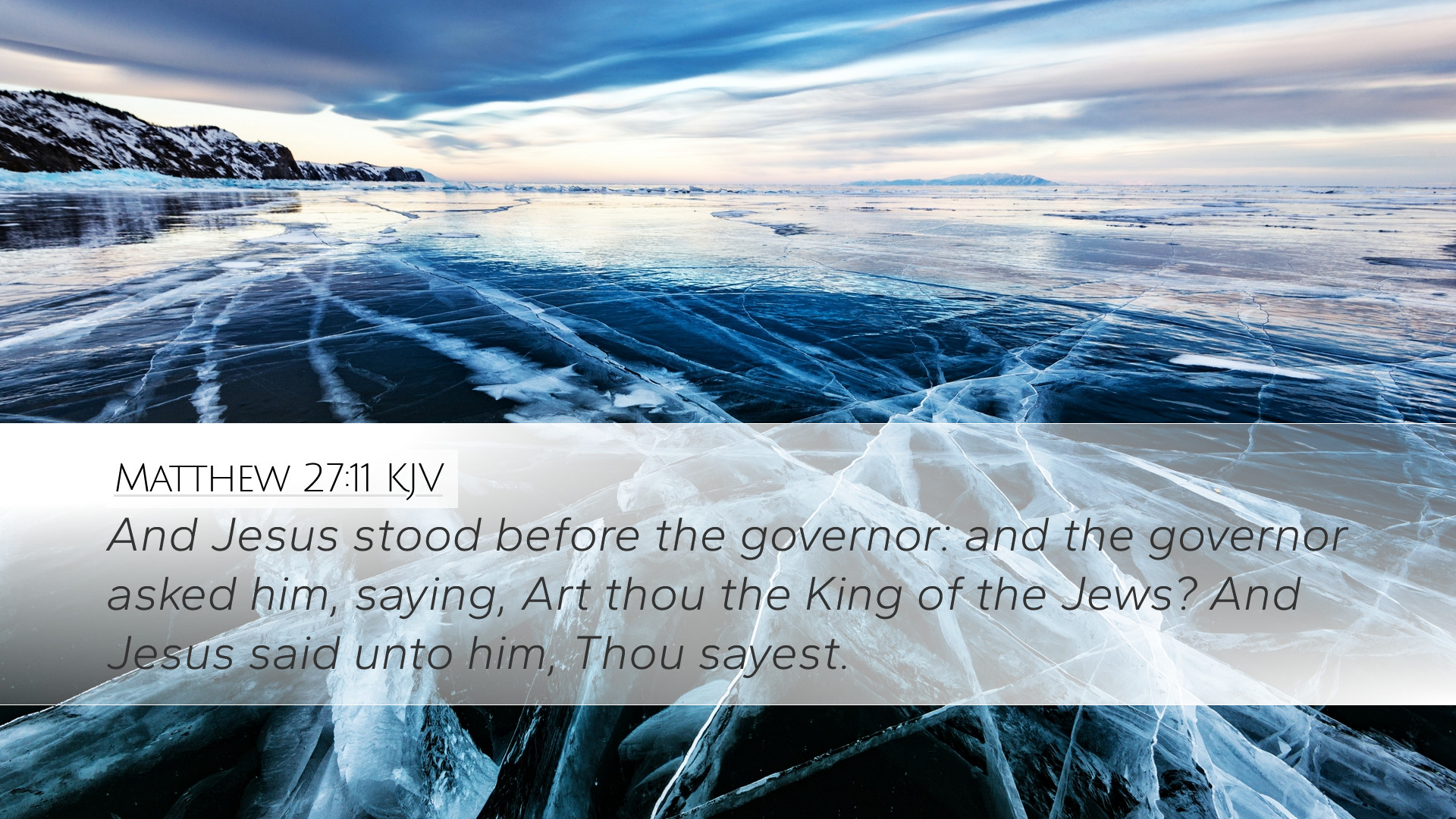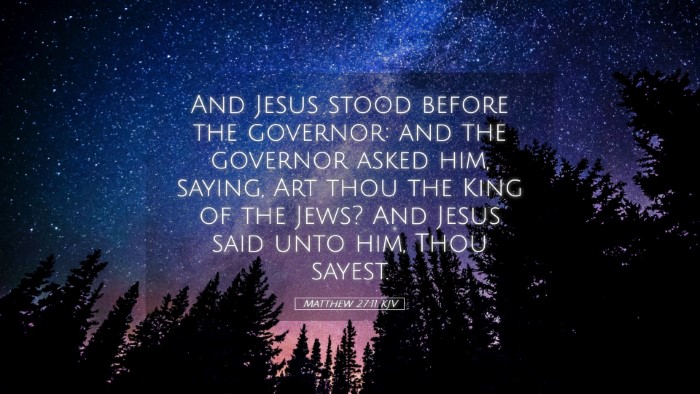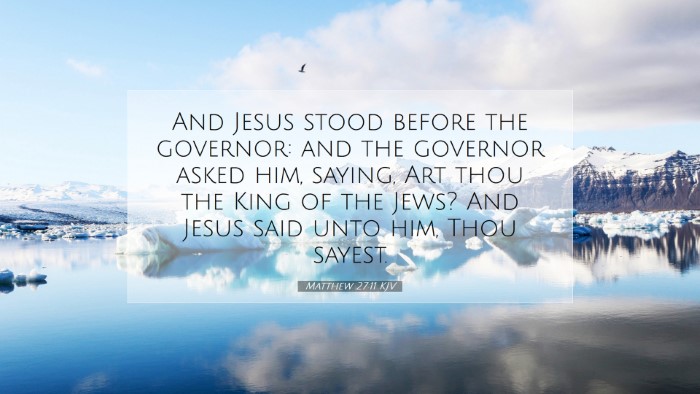Commentary on Matthew 27:11
Matthew 27:11 states, "And Jesus stood before the governor: and the governor asked him, saying, Art thou the King of the Jews? And Jesus said unto him, Thou sayest." This verse holds significant weight in theological circles as it encapsulates pivotal themes of Kingship, Authority, and the fulfillment of prophecy regarding Jesus Christ’s identity.
Contextual Understanding
This verse takes place during the trial of Jesus before Pontius Pilate, the Roman governor. It is crucial to understand the socio-political climate of the time, where Roman authority was supreme, and Jewish expectations of a Messiah were heavily steeped in political liberation. The interaction between Jesus and Pilate raises profound questions regarding the nature of Jesus’ kingship.
The Nature of Jesus’ Identity
The question posed by Pilate, "Art thou the King of the Jews?" serves as a pivotal inquiry into Jesus’ identity. Matthew Henry notes that Pilate is attempting to ascertain whether Jesus presents a legitimate political threat. This highlights the disparity between worldly kingship and the spiritual kingship Jesus embodies.
-
Albert Barnes: Emphasizes that Jesus did indeed fulfill the role of the King of the Jews but in a spiritual rather than a temporal sense. His kingdom is not of this world (John 18:36).
-
Adam Clarke: Points to the irony in the questioning; a true King does not engage in self-defense or denial of his role, as Jesus acknowledges Pilate’s claim with the phrase, "Thou sayest."
Jesus' Response
In responding with "Thou sayest," Jesus asserts a truth about his identity without directly claiming the title, thus embodying humility and compliance with divine sovereignty. This is significant for several reasons:
-
Kingdom Profoundness: His kingship transcends earthly power; he is aware of the greater plan at work.
-
Astuteness and Clarity: By not overtly declaring his kingship, he sets the stage for the unfolding of the redemptive narrative rather than engaging in a political battle.
-
Foreshadowing: His acceptance of the title under the scrutiny of civil authority foreshadows the ultimate sacrificial role he was to play for humanity.
Theological Implications
This passage invites deep theological reflection on the sovereignty of Christ. As Matthew Henry eloquently articulates, this moment is a precursor to the larger narrative of redemption, showcasing Jesus as the willing lamb led to slaughter:
-
Sacrifice: Jesus' demeanor exemplifies the true nature of his mission—selfless love and redemptive suffering for the sake of mankind.
-
Authority: While Pilate holds temporal power, Jesus reveals that true authority lies not in coercive rulership but in sacrificial love and unwavering truth.
-
Prophetic Fulfillment: Jesus' acknowledgment aligns with prophetic scriptures regarding the Messiah, reinforcing the evidence of his identity as foretold in the Old Testament.
Practical Application for Believers
For pastors, students, and theologians, Matthew 27:11 serves as a rich source of application:
-
Understanding Identity: Believers are called to reflect on their own identity in Christ and how it manifests in a world often at odds with spiritual truth.
-
Courage in Trials: Jesus’ example encourages Christians to stand firm in their beliefs, even when confronted with challenges and misinterpretations of their faith.
-
The Nature of Christ’s Kingdom: Engaging with the concept of Jesus as King invites believers to re-evaluate their understanding of power, authority, and leadership within the church and society.
Conclusion
In summary, Matthew 27:11 represents a critical juncture in the gospel narrative, highlighting themes of truth, authority, and identity that are essential for spiritual leaders and scholars alike. Drawing from insights of biblical commentators enhances our understanding of this rich text, propelling believers towards a deeper engagement with their faith and the nature of Christ’s role as King. As we navigate a contemporary landscape, the timeless truths of scripture remain a guiding light in our pursuit of understanding and living out the Gospel.


